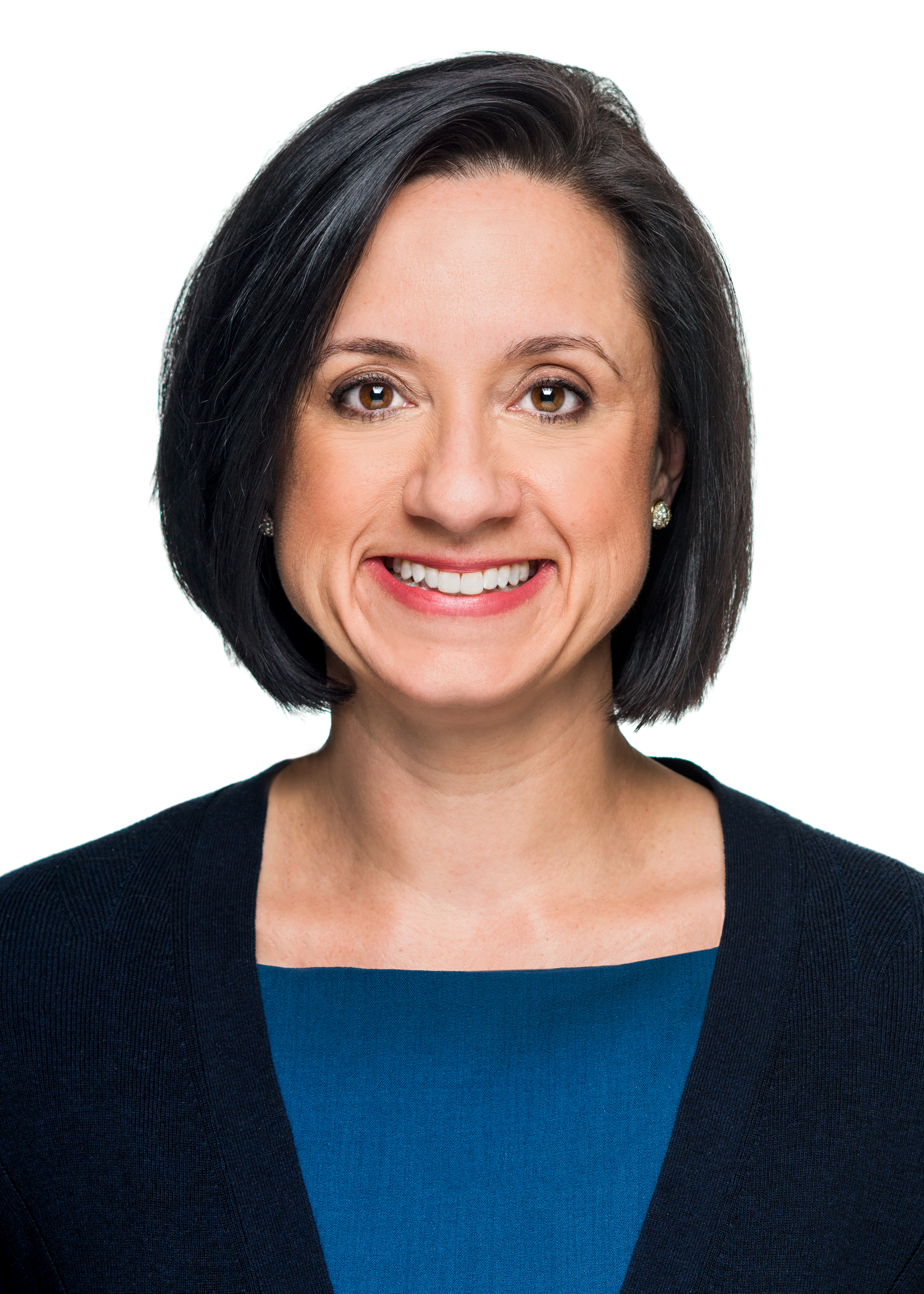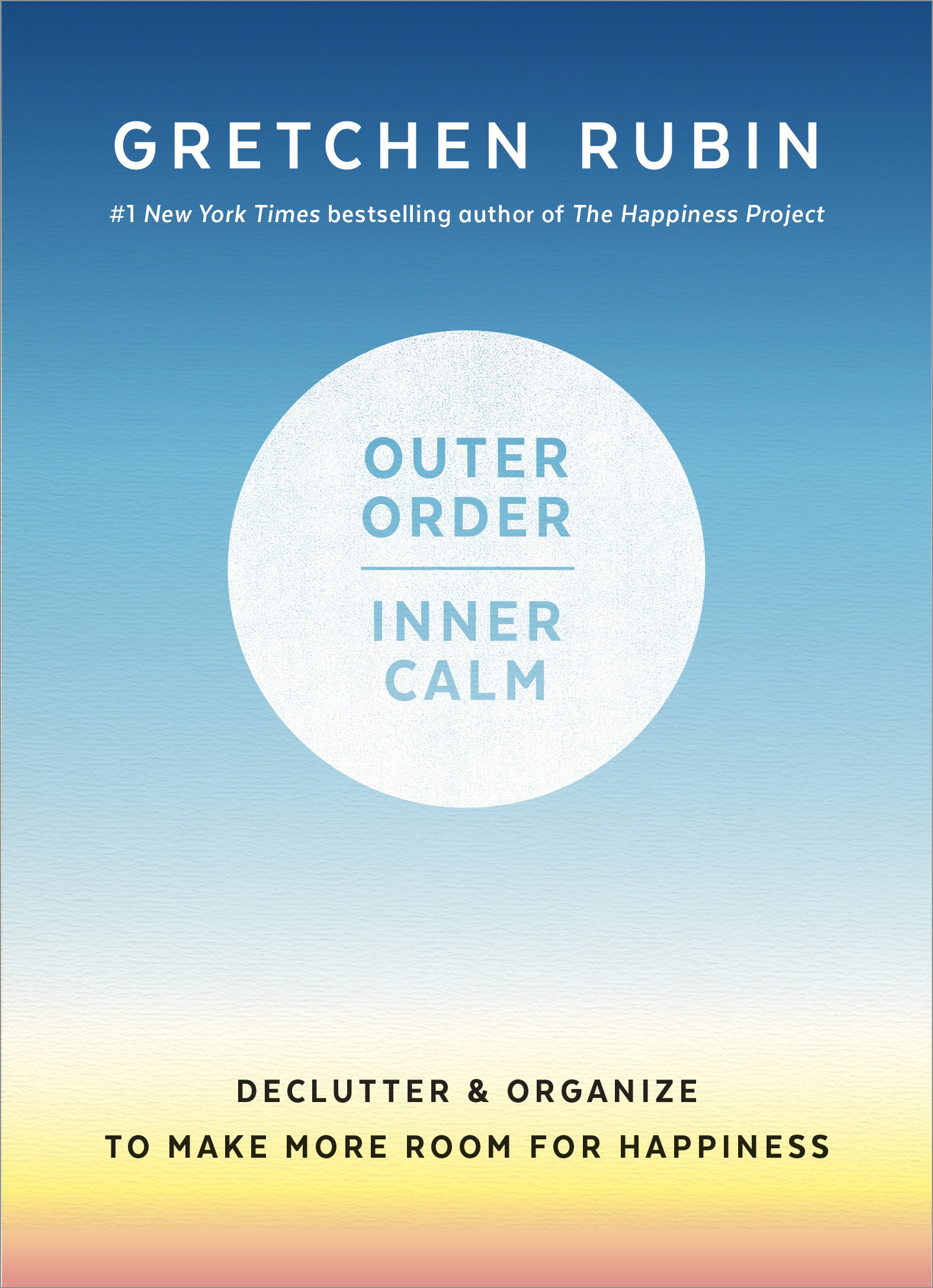For years, I’ve turned to Gretchen Rubin’s trusted and insightful expertise on human nature, habits, and happiness. I’m not alone in turning to her work for advice: her books have sold over three million copies worldwide and been translated into over thirty languages.
Among them are bestsellers like The Four Tendencies, Better Than Before, The Happiness Project, and Happier at Home. In addition to her books, she has a blog and a podcast dedicated to these ideas.
Gretchen’s latest book, Outer Order, Inner Calm: Declutter and Organize to Make More Room for Happiness, ventures deep into the relationship between our physical space and our mental space. Her thesis? That organizing our outside life brings calm to our inside life. For me, it instantly resonated and I looked to find out more behind the story.
I first interviewed Gretchen in 2009 for the release of her book The Happiness Project. Ten years later, we had a chance to talk about ideas from her new book, including why it’s a good thing to be a little ruthless when it comes to abandoning projects, revisiting the meaning of happiness, and her advice for aspiring writers.
Laura Cococcia: Your bestselling books Happier at Home and The Happiness Project both focus on experimenting with how to bring more joy to our everyday lives. What is your definition of happiness? And what is happiness’ relationship to a writing practice? Is happiness mandatory to maintain a good writing practice?
Gretchen Rubin: For me, happiness doesn’t have a strict or fixed definition. In fact, it’s the looseness of the concept of happiness that I’ve written about. After all, ‘happiness’ is subjective. We could call it ‘satisfaction,’ ‘peace,’ ‘joy,’ ‘bliss’ – there are so many academic definitions that I’ve clarified it to mean: ‘what would make you happier?’ Experts always talk like there is one best way to be happy, when in reality there isn’t. My focus is defining happiness in an open way, so people can make sense of what it means to them individually.
I used to think about happiness being a writerly thing, because I am a writer and feel happy when I’m writing. That’s the association for me. Some people feel a compulsion around their passion, and that makes them happy. I am like that. Once I know the book I want to write, I have to write that book. It strikes me like a lightning bolt, at exactly the right time. And even after the book is finished, I must write. Other professions might feel like that too.
Tremendous happiness is what I want in my work and play. It’s my ultimate goal.
LC: Your new book, Outer Order, Inner Calm, makes the argument that if we can control our stuff — our unruly desks and cluttered closets — our energy, including our creative energy, will flow better. I know a lot of writers who like to procrastinate by cleaning and wonder if greater calm is a part of the impulse to do so. How did you discover this in your own life? Why was it so important for you to share this belief with others?
GR: It’s not surprising that some writers procrastinate via cleaning! It’s something we can tackle in the physical world. An orderly physical space can calm our irrational fears inside our mind, make us calmer, and ultimately give us more energetic, visual, and mental relief.
But how much better would it be for us in terms of our mental quality if we could clear our space before we feel the anxious need to procrasti-clear it?
This is something I talk about in my book Better Than Before too. Luckily, people are waking up to this idea that being ruthless about what you keep in your space makes us feel good. When I released the book, people would come to me and say, “I finally cleaned by fridge, and changed careers.” This is something I do with my own family. My daughter and I cleaned out her closet recently, and we did it ruthlessly. And by the end, we felt great. So, habits like making the bed or donating objects that just clutter your space really do create greater calm.
LC: What might be some strategies you can share on how to conquer writer’s block or start a new project when feeling anxious about where it’ll go, or how good it’ll be? What specific strategies might there be for overcoming these that come from Outer Order, Inner Calm?
GR: Knowing you have the right tools at hand, and that you have an orderly writing environment can make all the difference toward easing anxiety. Do you have the writing software you like, and is it up to date? How about your favorite notebook or your magic pen?
You’ll want to think not just about whether you have these tools, but whether they’re readily accessible, and that anything you don’t need isn’t in your way. For instance, do you really need that huge dictionary on your desk? Or can it go on your bookshelf across the room?
I’m not saying, either, that you need to have a back stock of these essential writing tools. They have more at the store if you need another! You shouldn’t include more than you need in the immediate writing environment. For instance, keep just one highlighter on your desk.
Spend some time making sure your writing space is calm. It’ll make work a joy.
LC: One of the interesting things about Outer Order, Inner Calm is that it’s about how making more room in our physical world gives us more room in our non-physical world. What stories do we tell ourselves about the need to stay surrounded by stuff? How is our love of things impacting our creativity?
GR: One of the ways needing to be surrounded by stuff shows up is in the clutter of unfinished projects. That takes up a big amount of room in our non-physical world. Do you really want to finish that needlepoint? Or learn to play guitar?
Our love of things can convince us that we should finish something. For instance, we think if we buy a music stand, we’ll want to practice the guitar. Or if we have a yoga mat, we’ll want to practice yoga. But that’s not how it works. Our desire for yoga, or making beautiful music, has to be the driving force.
If you aren’t finishing it, no matter how much gear you have or time you’ve spent thinking about it, abandon the project. You’ll feel a rush of relief and energy when you do. You’ll no longer be weighted down from it. It’s okay to leave things, and that’s a new story we need to start telling ourselves.
LC: Your podcast, Happier, is a top listen on iTunes and has received accolades from a variety of sources. Has working in this medium taught you anything new about writing? Similarly, when you’re preparing a podcast, what writing techniques are you carrying over?
GR: They’re immensely complementary formats. What I love about the podcast is that the ideas go out and come back immediately. We get feedback sooner, so we can iterate. It’s a study in human nature: if we talk about an idea, what inspires a flood of emails and voicemails? What are people engaged in, and where do they disagree?
The podcast also gives me the opportunity to collaborate with my sister. Writing is quite solitary, whereas on the podcast we can constantly be thinking aloud with each other.
LC: If you could choose two books by other authors for aspiring writers to read, which would they be and why? What about the content or subject matter of them would help writers to grow in some way?
GR: I’d certainly recommend On Writing Well by William Zinsser. It’s beautifully written and includes very practical advice on things like simplifying sentence structure and ordering ideas.
Anne Lamott’s Bird by Bird is an incredible resource also. In it, Lamott makes a case for why ‘shitty first drafts’ are actually a wonderful part of the writing process that help us get all our mental clutter around an idea out of our heads and into the physical world. This book is also a good example of writing in your voice when you’re writing on an impersonal subject.


